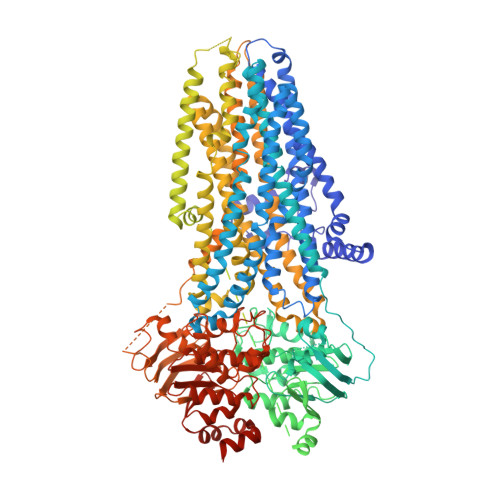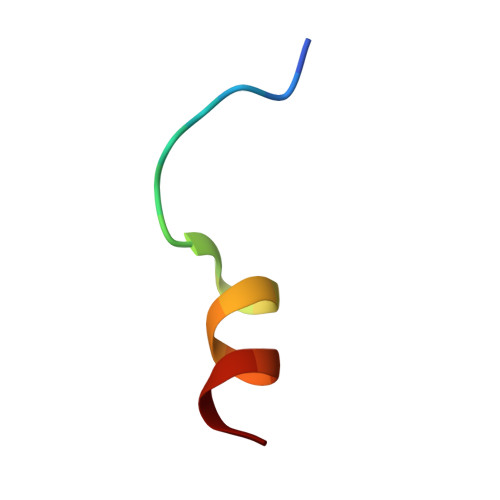Structural identification of a hotspot on CFTR for potentiation.
Liu, F., Zhang, Z., Levit, A., Levring, J., Touhara, K.K., Shoichet, B.K., Chen, J.(2019) Science 364: 1184-1188
- PubMed: 31221859
- DOI: https://doi.org/10.1126/science.aaw7611
- Primary Citation of Related Structures:
6O1V, 6O2P - PubMed Abstract:
Cystic fibrosis is a fatal disease caused by mutations in the cystic fibrosis transmembrane conductance regulator (CFTR). Two main categories of drugs are being developed: correctors that improve folding of CFTR and potentiators that recover the function of CFTR. Here, we report two cryo-electron microscopy structures of human CFTR in complex with potentiators: one with the U.S. Food and Drug Administration (FDA)-approved drug ivacaftor at 3.3-angstrom resolution and the other with an investigational drug, GLPG1837, at 3.2-angstrom resolution. These two drugs, although chemically dissimilar, bind to the same site within the transmembrane region. Mutagenesis suggests that in both cases, hydrogen bonds provided by the protein are important for drug recognition. The molecular details of how ivacaftor and GLPG1837 interact with CFTR may facilitate structure-based optimization of therapeutic compounds.
- Laboratory of Membrane Biophysics and Biology, The Rockefeller University, New York, NY 10065, USA.
Organizational Affiliation:






















